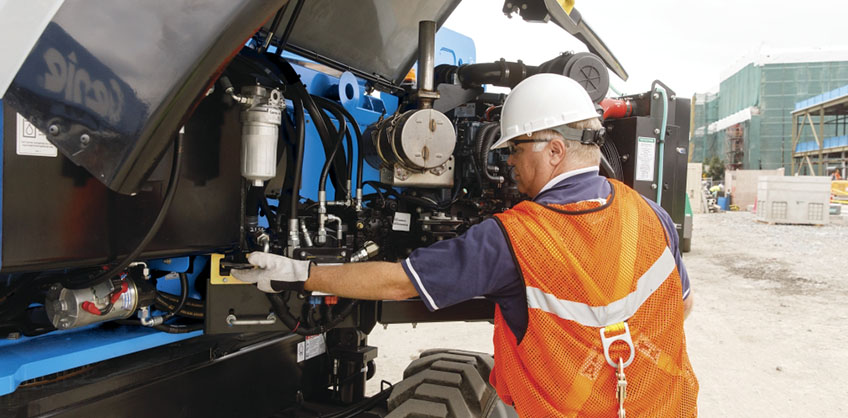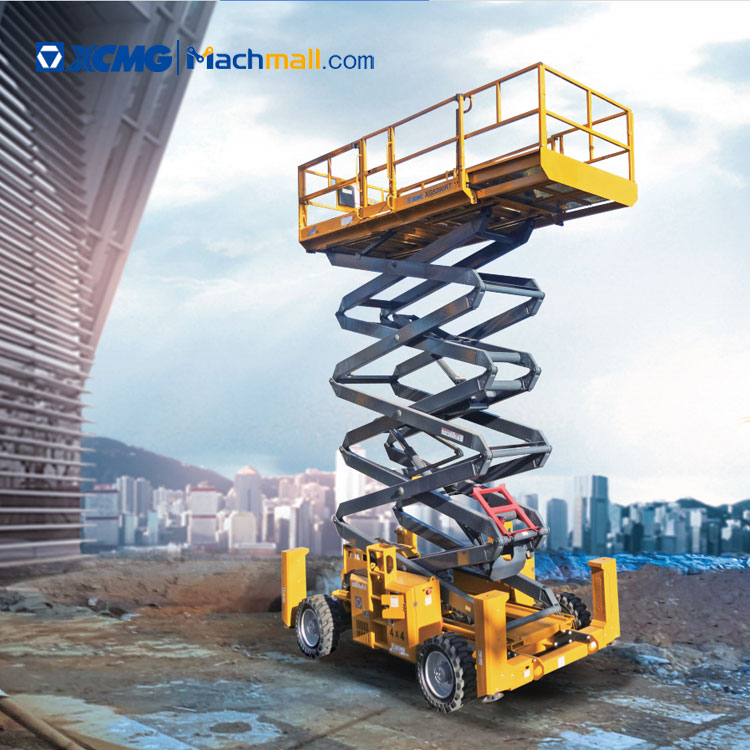Guidelines for Maintaining Your MEWP Fleet
Performing periodic inspections and proper
maintenance is essential for safety, as well as for getting optimal performance
from a mobile
elevating work platform (MEWP). This inspection and maintenance should be
performed by a qualified person and in accordance with the manufacturer’s
recommendations. As always, it’s important to consult the machine’s owner’s
manual for specific maintenance intervals and procedures.
However, the following are good, general guidelines for maintain
your MEWP fleet:
Make sure your tires and wheels are in good working condition.
Maintaining the condition of your MEWP’s tires and wheels is essential to safe
operation and good performance. Tire damage and/or excessive wear can affect
machine performance and stability. Component damage also could result if
problems are not discovered and repaired in a timely fashion.
A visual inspection can tell you whether your tread depth is
sufficient, as well as whether if there is any sidewall damage. Your machine’s
wheel decals and operator’s service and parts manual can provide details
specific to your model. Please refer to specific requirements for your machine,
and a qualified tire repair technician, for tire repair.

Check your hydraulic oil and perform periodic and programmed maintenance.
Performing checks and maintaining your machine’s hydraulic oil is
essential for good machine performance and service life.
Daily, MEWP operator should look for oil leaks and check hydraulic oil
levels before operation. Discovering and correcting changes in oil level, or
improper hydraulic oil levels, can help prevent damage to hydraulic components.
In addition to scheduled quarterly and annual maintenance intervals,
owners and maintenance personnel are responsible for checking hydraulic oil and
filters during programmed hours on the MEWP. In some cases, testing the
hydraulic oil for specific levels of contamination can verify whether changing
the oil is necessary.
And, finally, inspect the hydraulic filters. If the filter is not
frequently checked and replaced, impurities will remain in the hydraulic
system, which could result in component damage. Inspecting, and replacing
hydraulic filters and fluids when necessary, can improve system performance as
well as safe operation of the machine.

Additionally, maintaining a record on the MEWP — as provided by the
manufacturer — creates a record of the date of the last annual inspection, and
the interval at which inspections are required.
This record is a responsibility for all equipment owners, and it helps
keep track of your maintenance needs. Performing regular maintenance checks, as
well as preventative maintenance, improves up-time and ensures your equipment
is rental-ready, protecting your investment and residual value, as well as
improving your rental return on invested capital.











